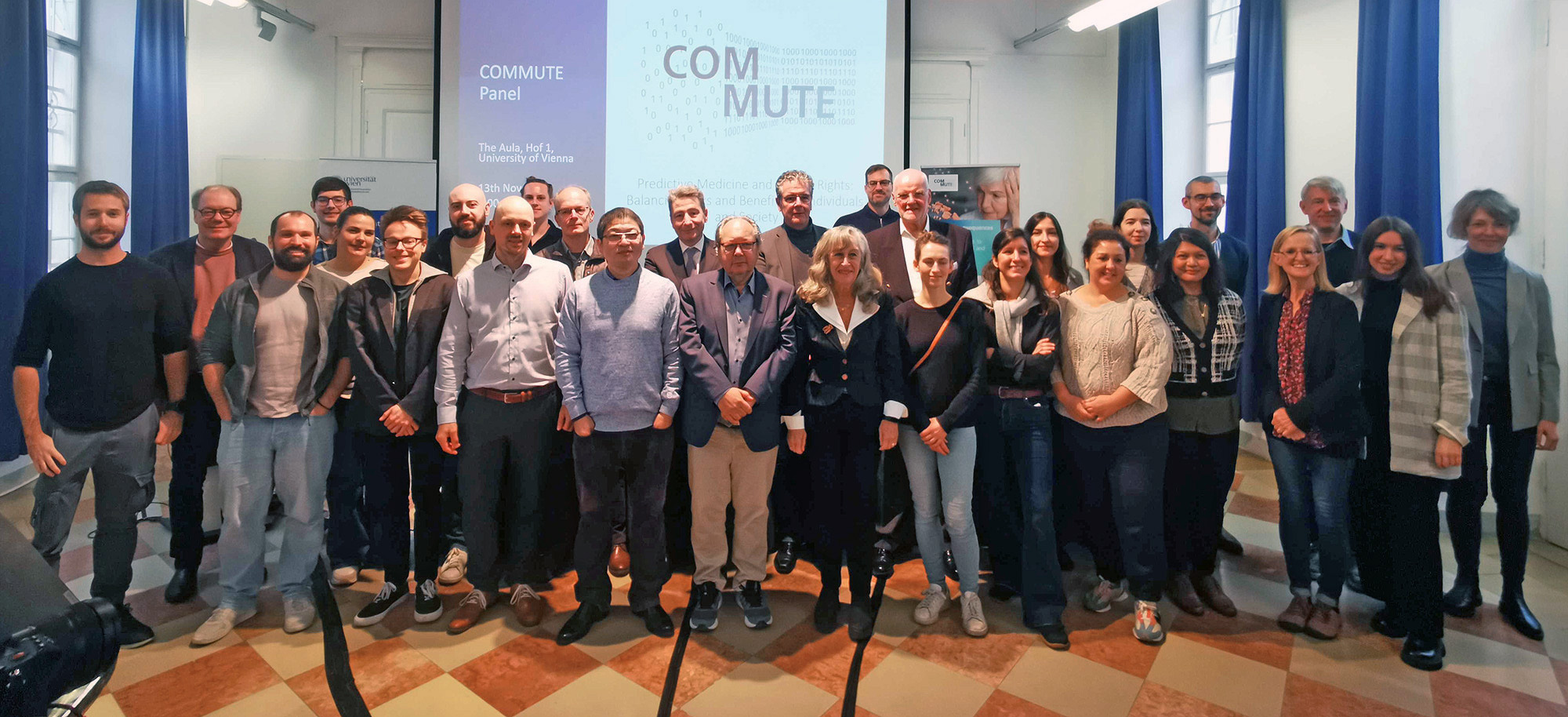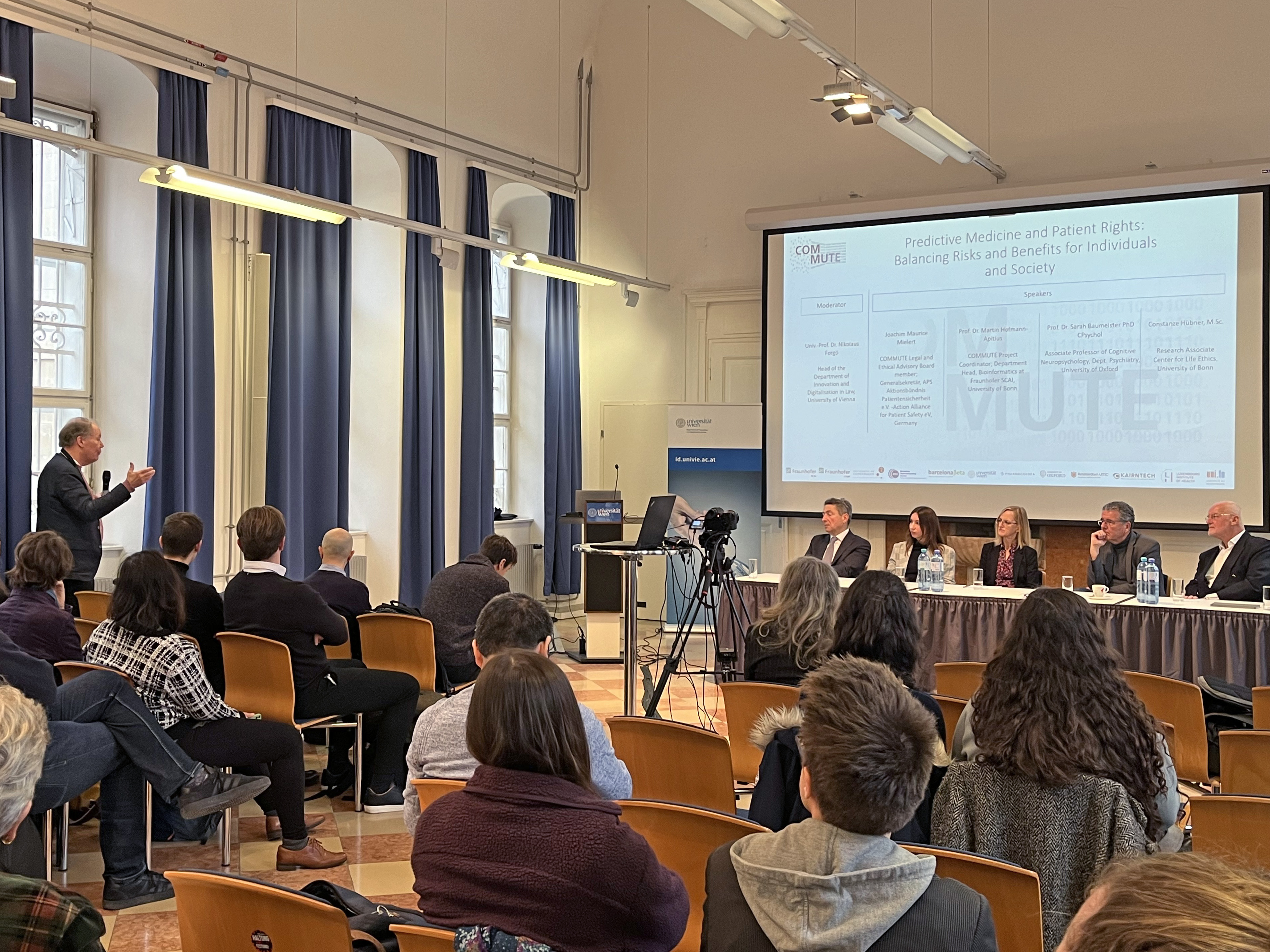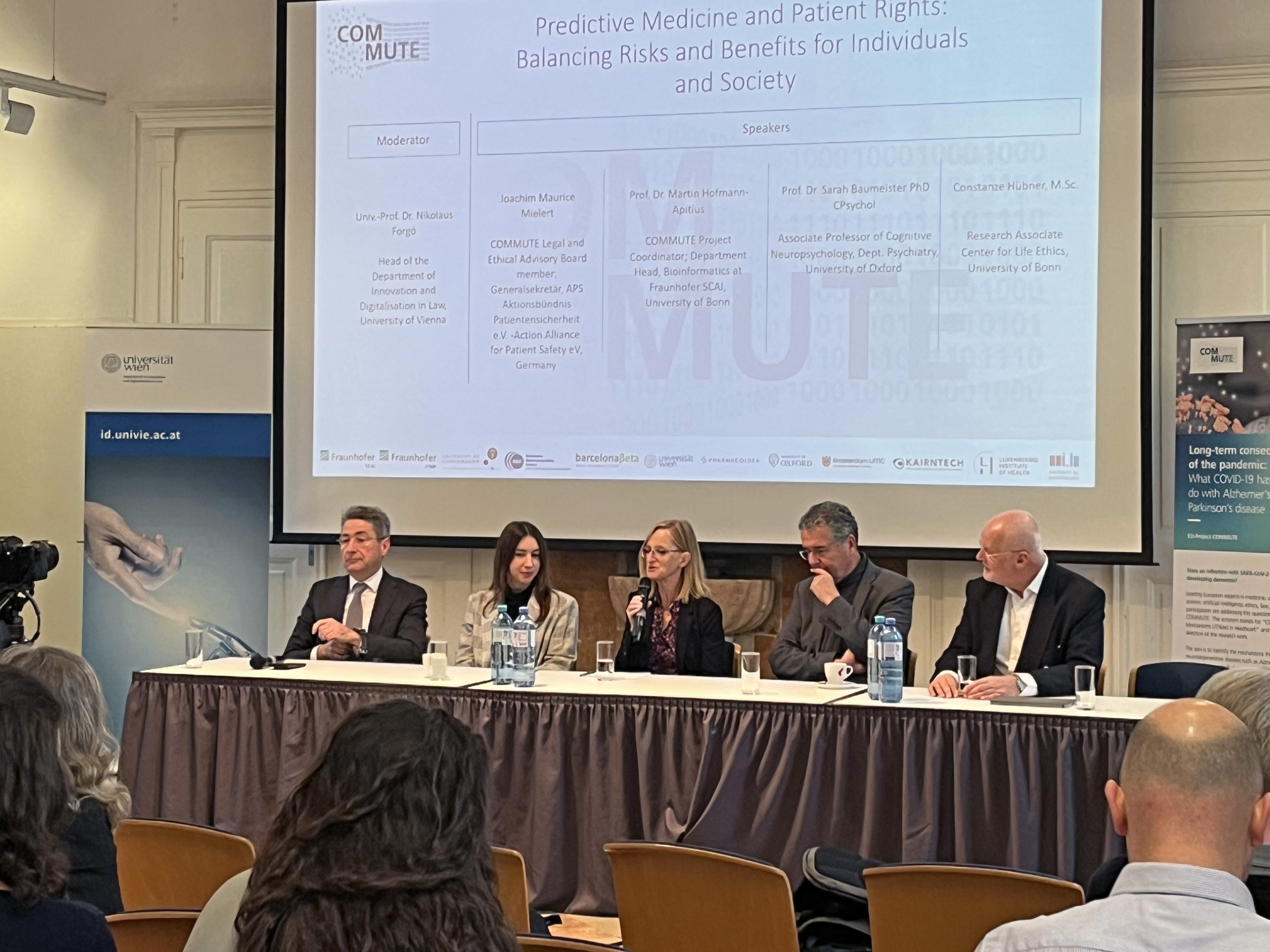COMMUTE Project Summary
August 25, 2025
Context and overall objectives
The coronavirus disease pandemic is an experiment involving all of humankind: almost everyone has been or will be infected with severe acute respiratory syndrome coronavirus 2. This makes it ideally suited to study the effects of severe acute respiratory syndrome coronavirus 2 infections on diverse individuals. There is growing evidence that viruses may be involved in neurodegenerative diseases, raising concerns about a potential wave of dementia due to coronavirus disease. In COMMUTE, we will focus on the mechanisms underlying the co-morbidity between coronavirus disease and neurodegenerative diseases, particularly Alzheimer’s disease and Parkinsonism.
COMMUTE combines two approaches: a hypotheses-free, data-driven approach utilizing big data and artificial intelligence and machine learning technologies to determine if severe acute respiratory syndrome coronavirus 2 infection increases the risk of developing neurodegenerative diseases, and a hypothesis-driven, knowledge-based approach leveraging existing scientific knowledge about the mechanisms linking coronavirus disease and neurodegeneration. Both approaches will inform each other through collaboration between computational and experimental biology methods. The first goal of the COMMUTE project is to understand the comorbidity between coronavirus disease and neurodegenerative diseases causally. The second goal is to translate actionable insights into personalized health applications. On the artificial intelligence and machine learning side, the outcome will be a set of qualified biomarkers and predictive features for an artificial intelligence-powered recommender system that allows individualized risk assessment and recommendations. On the biomedical side, COMMUTE will use cell-based assays to test the drugability of candidate mechanisms and targets for drug-repurposing in collaboration with REMEDI4ALL, a large European Union drug repurposing platform. COMMUTE aims to foster ongoing exchange between partners and end-users to ensure their needs and concerns are integrated into the project outcomes. A Legal and Ethical Advisory Board has been established, comprising experts who will meet regularly to participate in discussions and provide advice.
Engaging users (patients, healthcare professionals, institutions, etc.) through annual workshops is another crucial aspect. Insights from these workshops will be compiled into recommendations published at the project's conclusion. Throughout the project, COMMUTE will analyze legal and ethical requirements, addressing topics such as consent under the General Data Protection Regulation for patients with neurodegenerative diseases and the interplay of regulatory frameworks in the medical sector with the emerging legal framework for artificial intelligence in the European Union. Attention to legal and ethical developments and patient engagement are vital for the project's success.
Work performed and main achievments
The COMMUTE project has made significant progress in its technical and scientific objectives. Overall management was successfully coordinated, aligning activities with objectives and milestones. The consortium completed all contractual obligations, including reporting duties to the funder and finalizing the Consortium and Grant Agreement. A comprehensive Data Management Plan was developed to outline data handling procedures adhering to Findable, Accessible, Interoperable, and Reusable (FAIR) principles, facilitating effective data governance. A Dissemination and Communication Plan was submitted to engage stakeholders, including patient organizations and research institutions. In terms of data management, a description of data handling and knowledge graphs was generated. The team examined various data models and ontologies to standardize clinical dataset features, leading to a comorbidity-centric knowledge graph with 2,800 curated relations and a natural language processing-enhanced hypothesis graph with 4,700 edges. An enrichment server was created to enable algorithmic usage of these knowledge graphs for analyses like gene set enrichment. Efforts to create biomarker-based artificial intelligence and machine learning models to identify patients at risk of neurodegenerative diseases involved accessing multiple databases. The project also focused on uncovering molecular mechanisms linking coronavirus disease and neurodegenerative diseases, identifying relevant public databases for further investigation.
The project identified knowledge-based hypotheses for comorbidity mechanisms through literature review, yielding testable hypotheses and experimental models. Collaboration with artificial intelligence and machine learning initiatives led to identifying critical molecular drivers of coronavirus disease and neurodegenerative disease comorbidities through advanced network analysis. To address legal and ethical considerations, the advisory board facilitated dialogue through workshops with consortium members and stakeholders, providing recommendations for project implementation. Data governance was strengthened through a Data Protection Impact Assessment, and a centralized helpdesk was set up for legal queries. In the first 18 months, the COMMUTE project has made substantial advancements in understanding the interplay between coronavirus disease and neurodegenerative diseases while developing robust data management frameworks and ensuring ethical compliance.
Results beyond the state of the art
The COMMUTE project has generated valuable results that could significantly impact scientific understanding and practical applications regarding coronavirus disease and neurodegenerative diseases. Key achievements include comprehensive analyses of relevant knowledge through knowledge graphs elucidating the comorbidities between these conditions, as well as advanced artificial intelligence and machine learning models for identifying at-risk patients. These innovations enhance the understanding of molecular mechanisms linking coronavirus disease and neurodegenerative diseases and pave the way for improved diagnostic and therapeutic strategies.
Policy relevant evidence of your project
The COMMUTE project provides critical evidence regarding the potential link between coronavirus disease and neurodegenerative diseases, highlighting the need for awareness in European Union health policies. The findings underscore the urgency for policies addressing the long-term health impacts of viral infections, particularly concerning dementia.
As with all European Union-funded projects, structured crosstalk between related projects bears great potential for synergy. We have teamed up with NeuroCOV, a project on the co-morbidity between coronavirus disease and Alzheimer’s disease, coordinated by the German National Center for Dementia Research. We have also linked closely with the POINT project funded in the same call as COMMUTE. The theme of “infectious diseases influencing risk and outcome in non-communicable diseases” deserves more interaction. We encourage the European Union to request more inter-project activities, which could leverage the funding body's investment.
To this end, the European Union should integrate findings from COMMUTE into health policies addressing neurodegeneration, fostering research into the long-term consequences of viral infections. Additionally, robust data protection regulations should be advocated to facilitate research while safeguarding patient rights and ensuring compliance with the General Data Protection Regulation and ethical standards. Supporting initiatives that promote collaboration among healthcare professionals, researchers, and policymakers is vital to address the challenges posed by coronavirus disease and neurodegenerative diseases. By aligning with these recommendations, European Union policies can be strengthened to better manage the implications of the coronavirus disease pandemic on public health and neurodegenerative diseases.
 Comorbidity Mechanisms Utilized in Healthcare
Comorbidity Mechanisms Utilized in Healthcare






